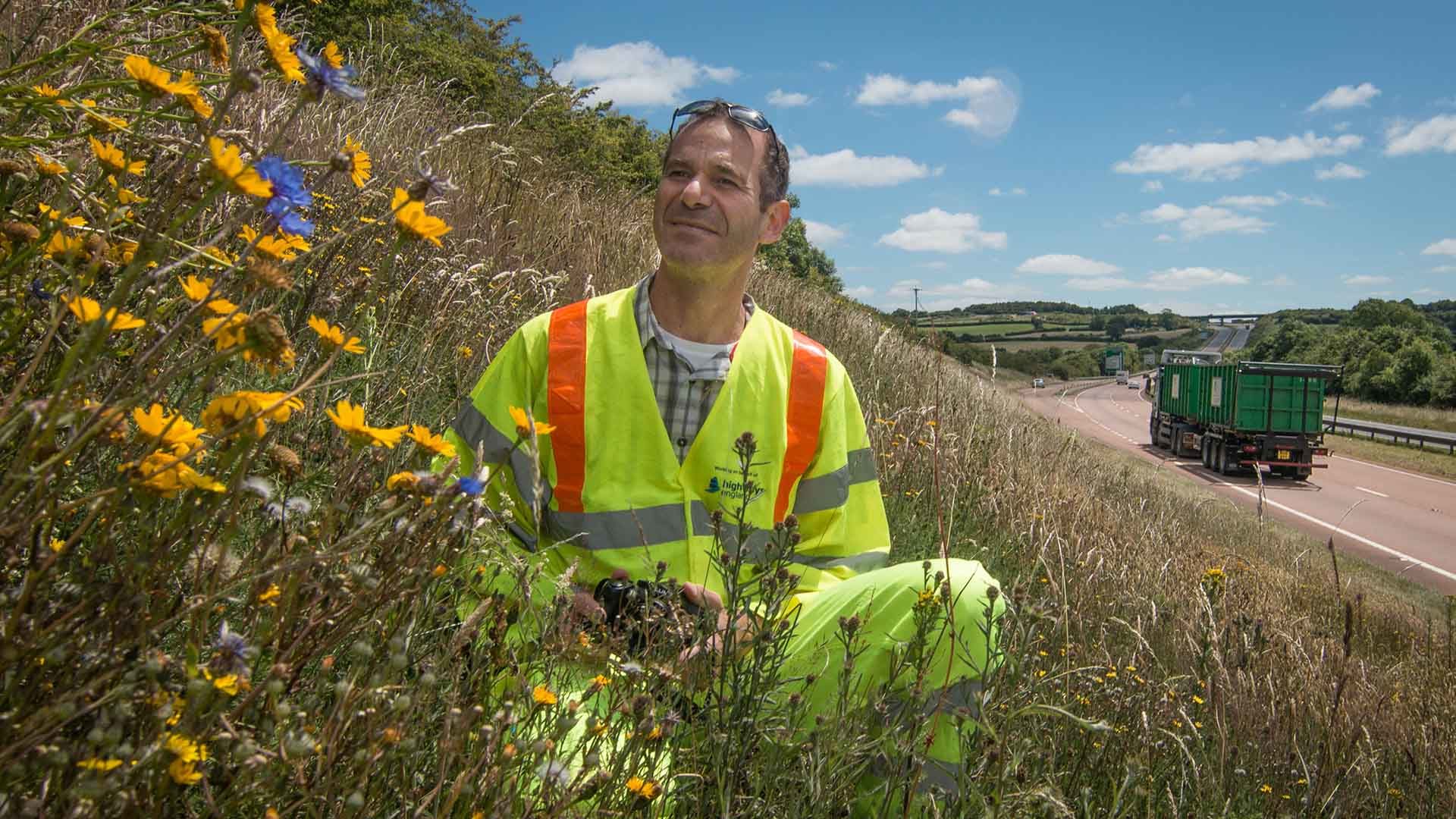
Highways England is promising to ‘bring the country’s verges to life’ by encouraging the growth of wildflowers. The answer lies in the soil.
On all major road schemes, contractors will be instructed to follow a new Low Nutrient Grasslands policy aimed at keeping away ‘bullying’ plants such as aggressive grasses, dock and nettle. These are fast-growing plants that compete with delicate wildflowers for water, nutrients, space and light.
Removing soil nutrients slows the growth of vegetation, reducing mowing and management requirements, while improving biodiversity by allowing wildflowers to germinate and thrive. Grassland areas on improvement schemes will be finished with subsoil or bare substrate such as chalk.
Good news for pollinators and other wildlife, but also good news for drivers who will enjoy a more aesthetic roadside landscape. Further benefits include fewer maintenance visits, reducing vegetation growth and eliminating the need for topsoil import and haulage.
‘Biodiverse grasslands throughout England’

Highways England environmental advisor Ben Hewlett said: “Our new policy means we’ll create more biodiverse new grasslands as standard. And as 97 percent of all species of rich grasslands have been lost in the last century, it is great to think that our construction design standards could create substation areas of biodiverse grasslands stretching throughout England.”
In building the Weymouth Relief Road, wide chalk cuttings were left bare, with minimal top soil, and seeded with wildflowers that thrive in chalk. These cuttings are now supporting 140 different plant species and 30 species of butterflies.
Dr Phil Sterling, building sites for butterflies programme manager at the Butterfly Conversation charity, said: “Over the past 10 years the Weymouth scheme has proven the benefits of the low nutrient approach – abundant wildlife and drastically reduced verge maintenance costs.”
Highways England also points to the wildflower scheme on the A38 in Devon. The scheme was started in 2018, with seeds from over 20 variety of flowers sown over five hectares of verge – the equivalent of eight football pitches. The project won a Pollinator Award in the Big Biodiversity Challenge run by CIRA (Construction Industry Research and Information Association).
Dr Kate Perry, Plantlife’s road verge campaign manager, said: “Our research shows that nearly half of our entire flora grows on our verges, making this an exceptionally important habitat for wildlife, which needs all the help it can get. We warmly welcome this new approach.”
READ MORE:
North-south divide in electric car charging points revealed